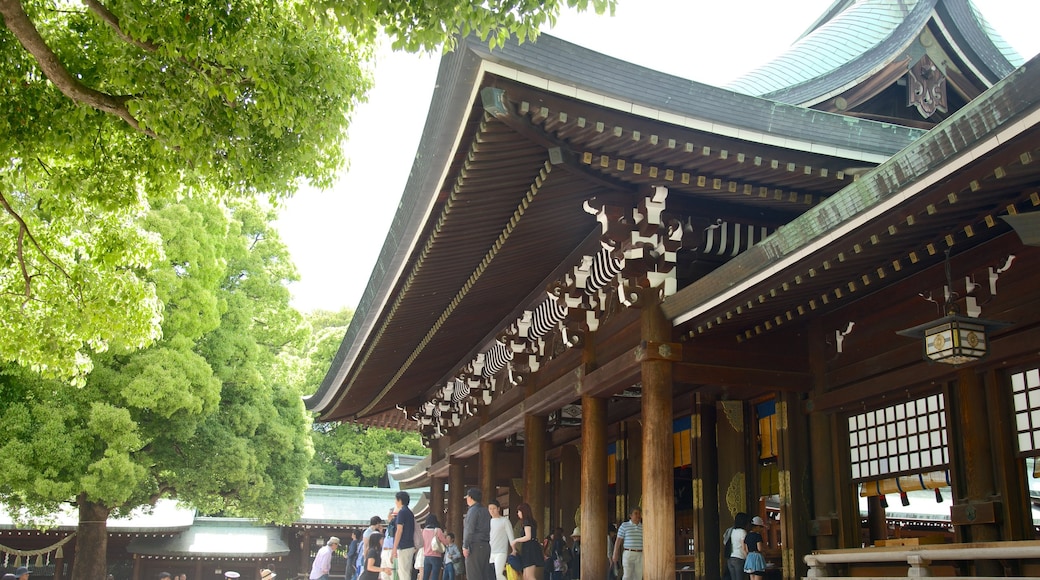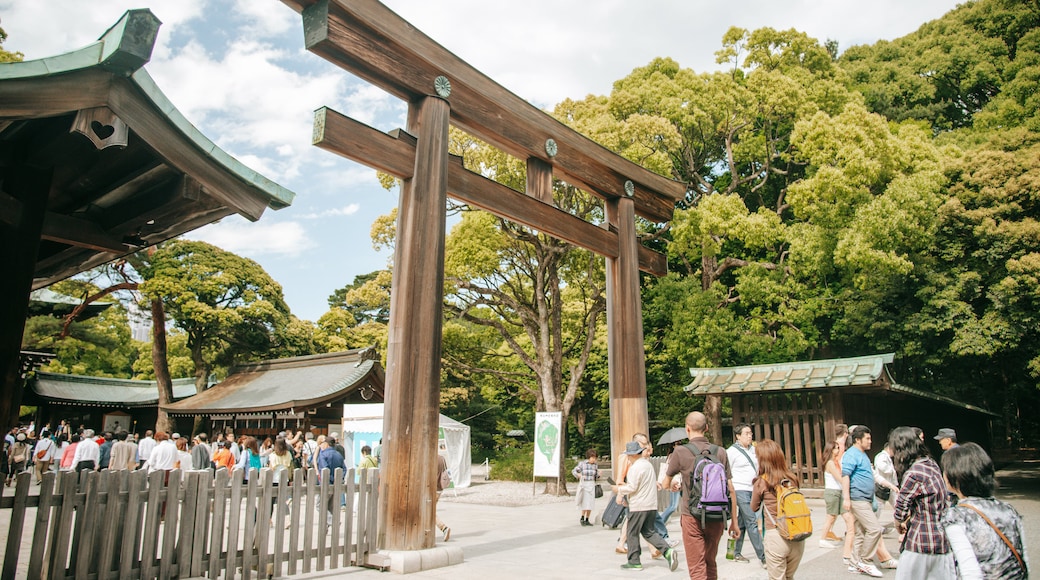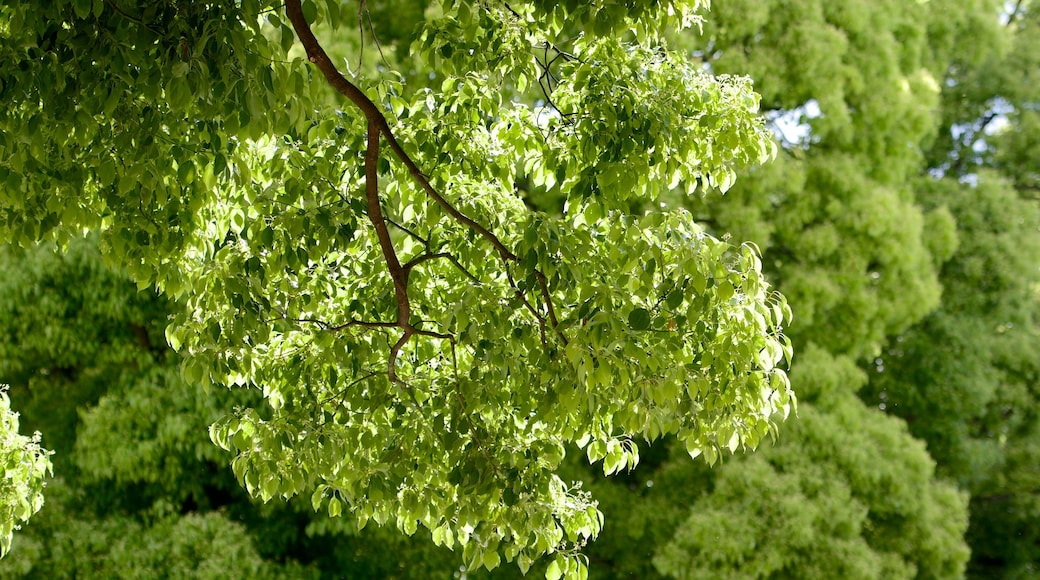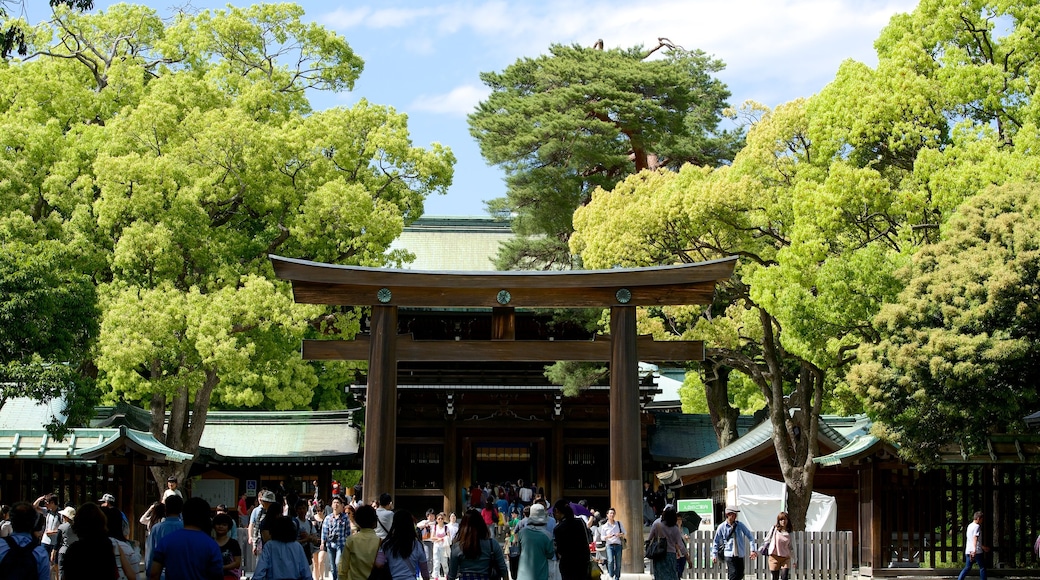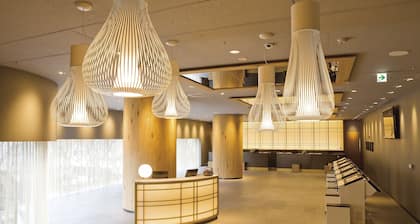Perhaps Tokyo’s most popular shrine, the Meiji Jingu Shrine is dedicated to Emperor Meiji, who was Japan’s first leader following the overthrow of the Tokugawa shogunate. It is the site of numerous festivals, weddings and events throughout the year. Visit this beautiful shrine to appreciate its atmosphere, serene despite its popularity with locals and tourists.
Enter the shrine grounds through the enormous 40-foot-tall (12-meter) torii gate, which is made of 1,500-year-old Japanese cypress. It’s about a 10-minute walk from here to the main complex of shrine buildings. Stop at the purification fountain just before the shrine’s entrance and use a ladle to wash your hands and mouth.
The reign of Emperor Meiji from 1868-1912 was a significant period in Japan’s history, marking the end of the country’s feudal era and the beginning of a modern Japan. The shrine was built soon after this in 1920, but it was destroyed during the air raids of World War II. What you see today is a beautiful reconstruction, completed in 1958.
At the shrine, write prayers or wishes on pieces of paper and tie them onto the prayer wall or write your wish on a wooden plate, called an ema, and hang it on the prayer board found in front of the large camphor tree. You can also make a prayer by throwing a coin into the offering box. Remember to bow twice, clap your hands twice and bow again after adding your coin.
Stroll along the quiet walking paths branching out from the shrine. The forest surrounding the shrine has more than 100,000 trees, planted as saplings brought from all over Japan during the shrine’s construction. View important belongings of the emperor and empress in the Treasure Museum found at the northern end of the shrine grounds. In mid-June, see irises in bloom in the Inner Garden at the grounds’ southern end.
Visit the shrine on a Sunday morning. If you’re lucky, you may see a traditional Shinto wedding procession taking place. The Meiji Jingu Shrine is a short walk away from Harajuku Station. The shrine is open daily from sunrise to sunset and admission is free.
